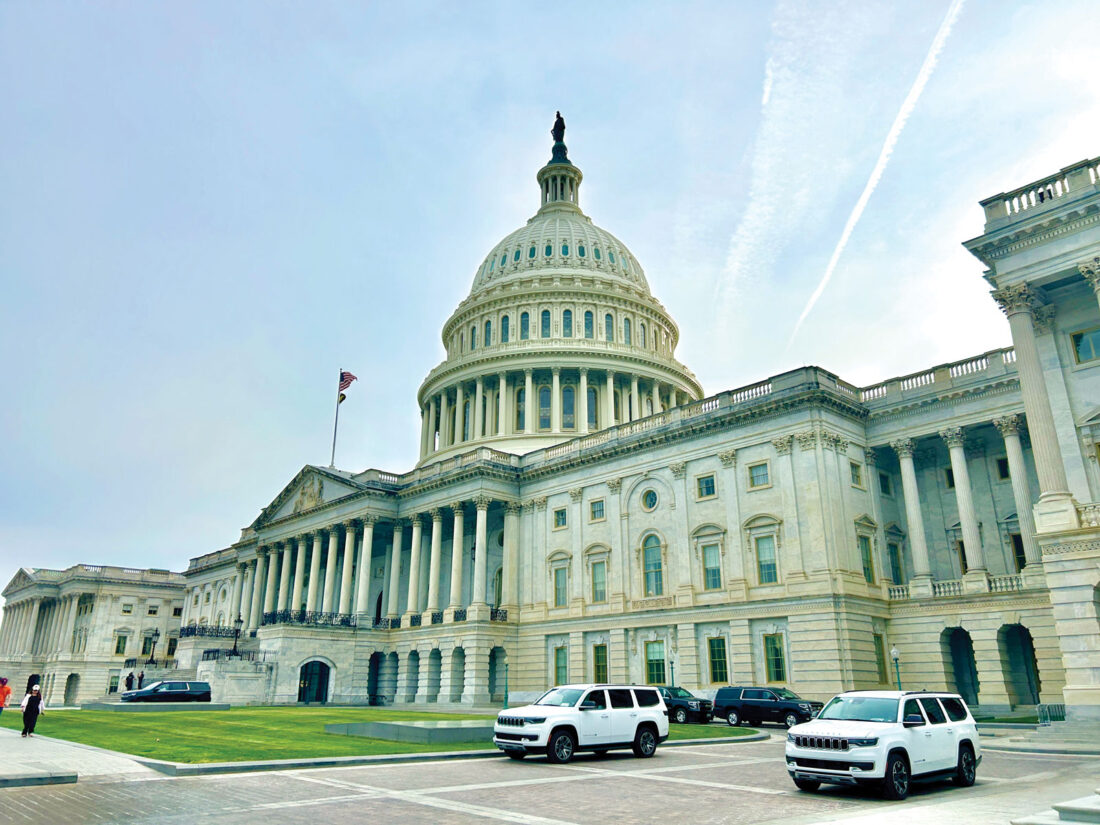Sen. Capito discusses ripple effects of government shutdown

Wednesday marked the beginning of the third week of a federal government shutdown as members of the U.S. Senate continue to vote on dueling continuing resolutions. (Photo by Steven Allen Adams)
CHARLESTON — A federal government shutdown that began on the first day of the new fiscal year on Oct. 1 has now entered its third week with no signs that the Democratic minority in the U.S. Senate plans to back down from demands for health insurance subsidies being included.
The U.S. Senate voted 51-45 Thursday for H.R.5371, the Continuing Appropriations and Extensions Act. However, the clean continuing resolution (CR) passed by the U.S. House of Representatives on Sept. 19 to keep the federal government funded at current levels through Nov. 21 failed to receive the 60 votes it needed to be considered by the Senate.
“We are in the third week of the government shutdown and I have voted 10 times to reopen the government in a non-partisan no-strings-attached way,” said U.S. Sen. Shelley Moore Capito, R-W.Va., on a conference call Thursday afternoon with West Virginia reporters following her vote on the House CR.
Democrats voting with Republicans on the House CR Thursday were U.S. Sen. Catherine Cortez Masto, D-Nev., and U.S. Sen. John Fetterman, D-Pa. They were joined by U.S. Sen. Angus King, I-Maine, who caucuses with the Senate Democratic minority. But in order to get over the filibuster threshold, the House CR must get to 60 votes. U.S. Sen. Rand Paul, R-Ky., has been a no, but two other Republican senators were absent.
“We need five more. and hopefully we will get that,” Capito said.
The Senate Democratic minority — led by Senate Minority Leader Chuck Schumer, D-N.Y. — have instead placed their support behind their own CR that would fund the government at current levels and permanently extend tax credits put in place during the COVID-19 pandemic for health insurance coverage through the Affordable Care Act (ACA). Those subsidies expire at the end of December, which will cause premiums to spike and some to lose their health care coverage.
According to MSNBC, Senate Majority Leader John Thune said he would guarantee a separate vote to extend ACA subsidies if the Senate Democratic minority agrees to support the House clean CR. Capito said that Senate Republicans are willing to have those negotiations, but time was ticking away.
“I don’t think holding the government or government employees hostage such as Chuck Schumer is doing right now is an effective strategy,” Capito said. “We have and I have numerous times said the issue of premium support for health care and the ACA is something we should talk about.”
Capito said that estimates for how much it could cost to extend those ACA subsidies should be released by Nov. 1, but the Democratic plan in their CR to extend those tax credits would cost approximately $1.4 trillion and reverses various Medicaid reforms made in the One Big Beautiful Bill Act — now called the Working Families Tax Cut Act — passed by Congress during the summer.
“We are basically saying if you would vote to open the government, we can start to negotiate on the health care premiums,” Capito said. “We’re certainly willing to negotiate. We’ve said that. I’ve talked with numerous Democrats about this.”
Meanwhile, non-essential federal workers remain furloughed or even laid off — a move by the administration of President Donald Trump that is being reversed by a U.S. District Court in California. Military personnel, law enforcement, air traffic controllers and other essential federal employees are continuing to work without pay, with the possibility of backpay being questioned.
The Department of Defense was able to pay active-duty military personnel for the pay period that ended Wednesday, but pressure to end the government shutdown and get other federal workers paid could bring Senate Democrats to the negotiating table.
“The President made sure the troops were paid this week, which we’re grateful for,” Capito said. “However, we have air traffic controllers that are calling in sick and then we’re going to have a whole host of other people that are not going to get a paycheck, and the President has said that the cuts that he’s making are going to become even more difficult. That’s the pressure point.
“The President himself has said he is interested in the premium support issue for health care,” Capito continued. “He’s not going to walk away from it. He said that already. So, let’s get to the point where we can negotiate this, and call an end to all of the scare tactics of not paying people.”
The Senate also failed to reach the 60-vote cloture threshold for H.R. 4016, the fiscal year 2026 appropriations bill for the U.S. Department of Defense in a 50-44 vote.





